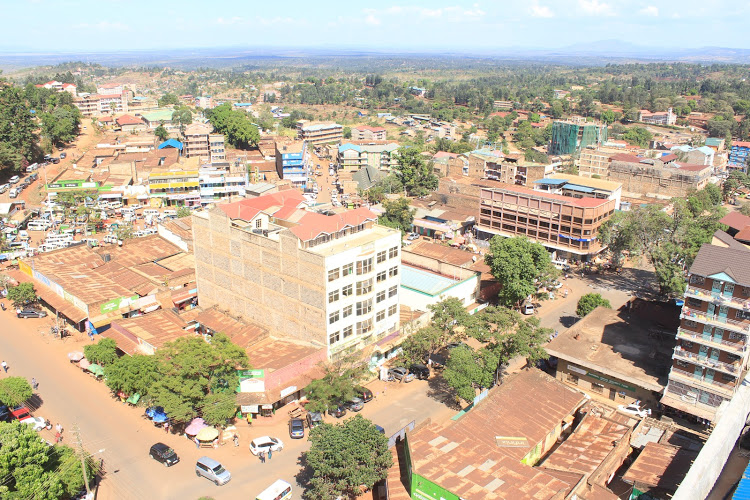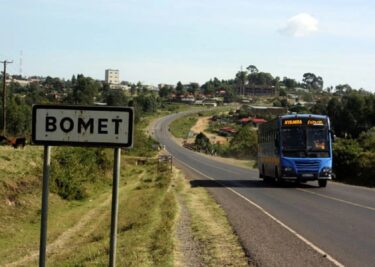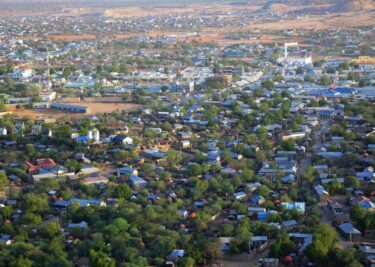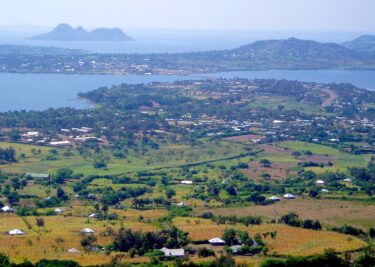The Thought-Provoking Origins Behind 6 Central Kenyan Town Names

Mūrang’a from The Star
As we navigate to the centre of the country the stories of names continue to highlight ideas, realities and corruptions of original words. Notably, many stories of place names have their origins in myths and lore and Central Kenya is no different. The area originally known as Metumi – which is where Mūkūrwe wa Nyagathanga was – is the point from which many Kikuyu people set out from. The first name Mūrang’a was allegedly coined in the 1890s, when elder Karūri wa Gakure gave the order to those accompanying Francis Hall to seek the land where their digging tools – known as Mūro – would hit stones underground that would make the sound ‘nga. This is the area that was given to Hall to build a fort. In time the area was colloquially known as the place of Mūro Nga which in time became Mūrang’a. From the early 1900s, it was also referred to as Fort Hall by the British.
The peoples of this area were governed by very strict law and order and when individuals would break the law they would be summarily banished. That is if they happened to survive being rolled down a hill in the midst of a beehive, beyond the Chania river where a series large, natural and now sacred rocks provided a natural bridge known as ruma thī over the river. The area on the other side of the river was considered uninhabitable. Once on the other side, many cries would be heard arising from those in exile and the place came to be known as the place of cries in Kikuyu – kīa Mbu. In time the exiles grew in number and would name their new homesteads after the places they left behind just like the English pilgrims who landed in New Hampshire and the Dutch who arrived in New Zealand. This is why several places in Kiambu have the same name as places in Murang’a.
Heading north, we get to Karatina which is where it is thought that a small market or trading post of some note was established underneath the shade of a blossoming tree of the Mūratina fruit. So, when people wanted to send others to the “shop” they were told to go to karatina or the place of the Mūratina tree.
A little further north is Nyeri which at different times was settled by Kikuyu and Maasai peoples. After a bloody battle between the British led by the notorious Colonel Meinhertzagen and the warriors of Tetū, a post was put up at the foot of a beautiful wooded hill. When he asked the Maasai the name of the hill he was told it was n-aier or nairragie – named for the look of a woman bending down from the waist. When he asked the Kikuyu who lived on the southern side he was told it was called kīrīma kīa nyīrīrī which referred to the small tributary running down the side of the hill. Clearly, both words defeated the Englishman’s tongue and we have a corruption of the two – Nyīīrī, which in time became Nyeri. While the name might have been too difficult, the beauty of the land was clear to see as Nyeri Hill (kīrīma kīa nyīrīrī) became the southern border of the White Highlands. Everything north of the hill could only be farmed by settlers and not Africans.

Nyeri from The Standard
Speaking of hills and water, this brings us to the other side of the Aberdares where a majestic waterfall drops down from the Ewaso Ngiro River from a height of 234 ft. The Kikuyu word for waterfall is Nyahururu – known in Maa as Enourrur, which is why the town of the waterfall has that name. It is literally calling a spade a spade!
And speaking of Maasai and Kikuyu corruptions brings us to the tongue twister of them all – Limuru. An unusual combination, this is a corruption of the words Ilmorok and Ngambura which both refer to a small fruit known as a black apricot. It looks similar to a kei apple (but edible!) that grew in spades in the area now known as Limuru.
Are you familiar with any other Central Kenyan towns with interesting name origins? Let us know in the comments!
#MijiYetu




1 Comment
Well done except for a minor correction:
Mûkûrwe wa Nyagathanga.